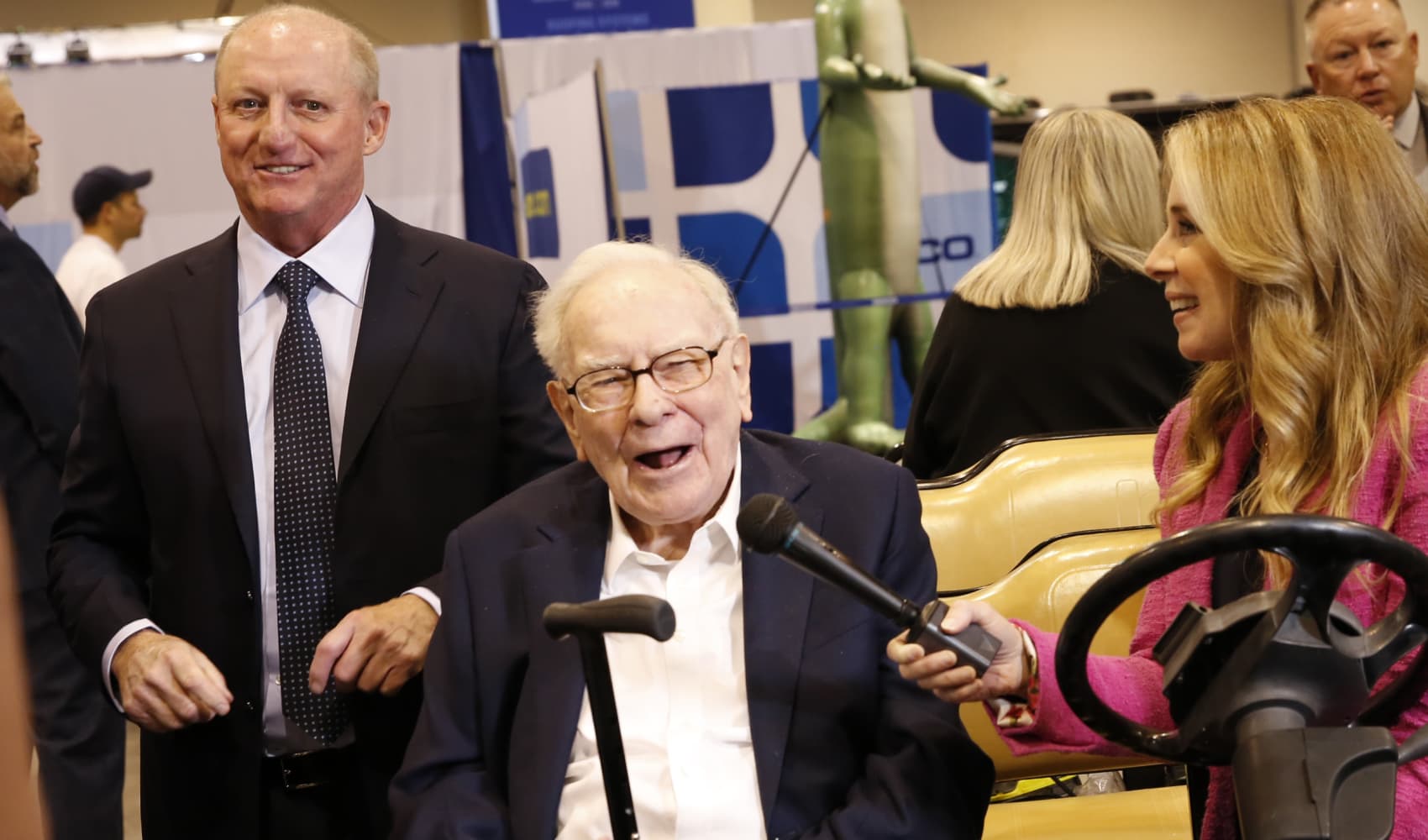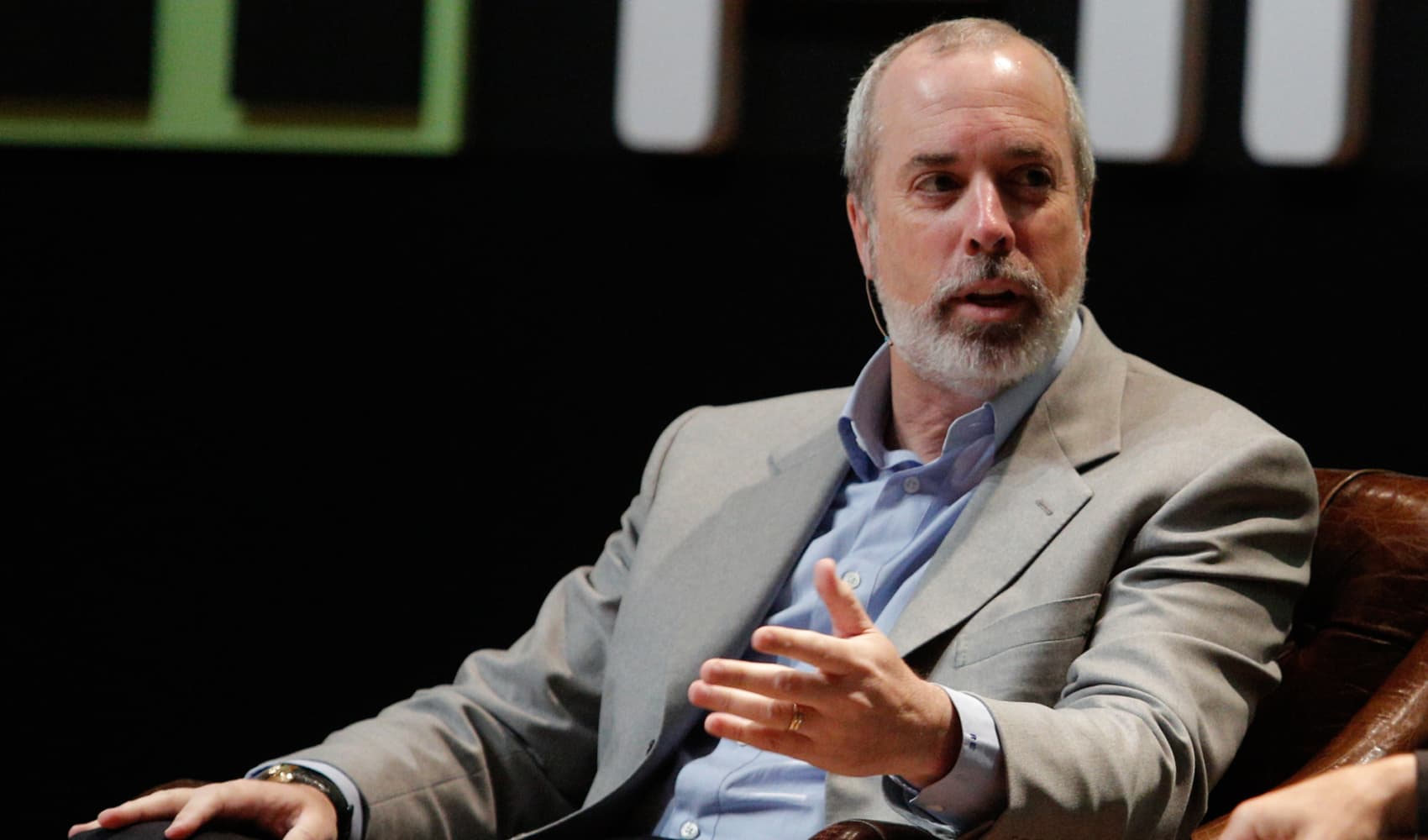Buffett's 5,502,284% Return: How He Did It
Warren Buffett's Astonishing Legacy: A 5,502,284% Return!
Introduction: The Oracle's Unprecedented Triumph
Warren Buffett. Just the name conjures images of shrewd investments, patient strategy, and, above all, phenomenal returns. But just how phenomenal? Brace yourselves: since 1965, Berkshire Hathaway shares have skyrocketed by a staggering 5,502,284%! That's not a typo. That's a mountain of wealth created over decades, leaving the broader S&P 500's impressive 39,054% gain in its dust. This article delves into the secrets behind Buffett's legendary performance, explores his upcoming transition, and what it all means for investors.
A Return Like No Other: Decoding the Numbers
Five million, five hundred and two thousand, two hundred and eighty-four percent. Let that sink in. To put it in perspective, imagine investing $100 in Berkshire Hathaway in 1965. Today, that initial investment would be worth over $5.5 million! This is a testament to Buffett's unwavering focus on value investing and his ability to identify and acquire exceptional businesses. But what exactly fueled this incredible growth?
The Power of Compounding
Buffett often talks about the magic of compounding, and Berkshire's performance is a prime example. Compounding is like a snowball rolling down a hill – it starts small but grows exponentially as it accumulates more snow. By reinvesting profits and focusing on long-term growth, Buffett has allowed Berkshire's earnings to compound at an astonishing rate.
Buffett's Successor: The Greg Abel Era Begins
After six decades at the helm, Warren Buffett is preparing to hand over the CEO reins to Greg Abel, the current Vice Chairman of Berkshire Hathaway Energy. This transition marks a significant moment in Berkshire's history, as investors eagerly anticipate whether Abel can maintain Buffett's legacy of exceptional returns.
Who is Greg Abel?
Abel is a highly respected executive within Berkshire Hathaway, known for his expertise in energy and utilities. He has a proven track record of managing large and complex businesses, making him a logical choice to succeed Buffett. Investors are looking for continued capital discipline and a focus on long-term value creation under his leadership.
The Buffett Philosophy: Value Investing at Its Core
At the heart of Buffett's success lies his adherence to value investing principles, popularized by his mentor, Benjamin Graham. What does this mean? It means buying undervalued companies with strong fundamentals and holding them for the long term.
Focusing on Fundamentals
Buffett doesn't chase fleeting trends or speculative bubbles. He focuses on understanding a company's business model, assessing its competitive advantages, and evaluating its management team. He looks for companies with a "moat" – a sustainable competitive advantage that protects them from competitors.
Berkshire Hathaway: A Conglomerate of Champions
Berkshire Hathaway isn't just a holding company; it's a sprawling empire of diverse businesses. From insurance companies like GEICO to iconic brands like Coca-Cola and See's Candies, Berkshire's portfolio is a testament to Buffett's ability to identify and acquire outstanding companies across various industries.
Diversification and Resilience
Berkshire's diversified portfolio provides a cushion against economic downturns. When one industry struggles, others can pick up the slack, ensuring the company's overall stability and resilience. This diversification strategy is another key ingredient in Buffett's long-term success.
Beyond the Numbers: The Importance of Integrity
While the numbers speak for themselves, Buffett's success is also rooted in his unwavering integrity and ethical standards. He has always prioritized the interests of Berkshire's shareholders and built a culture of trust and transparency within the company.
A Reputation Built on Trust
Buffett's reputation for honesty and integrity has earned him the trust of investors, employees, and the public. This trust is invaluable and has contributed significantly to Berkshire's long-term success. It's hard to put a price on something like trust, but it's worth more than gold to the "Oracle of Omaha."
Lessons for Investors: Emulating Buffett's Strategies
While replicating Buffett's exact success may be challenging, there are valuable lessons that investors can learn from his approach.
Patience and Discipline
Buffett's success is not a result of quick trades or speculative bets. It's a product of patience, discipline, and a long-term perspective. He's like a master chess player, always thinking several moves ahead.
Investing in What You Understand
Buffett famously avoids investing in businesses he doesn't understand. He sticks to his circle of competence, focusing on industries and companies that he knows well. This approach minimizes risk and allows him to make informed investment decisions.
The Future of Berkshire Hathaway: A New Chapter Begins
With Greg Abel taking over as CEO, Berkshire Hathaway is entering a new chapter. While the transition may create some uncertainty, the company's strong foundation and proven investment philosophy suggest that it is well-positioned for continued success.
Maintaining the Legacy
The challenge for Abel will be to maintain Buffett's legacy of exceptional returns while adapting to a changing business landscape. He will need to continue to identify and acquire outstanding companies, maintain Berkshire's culture of integrity, and uphold its commitment to long-term value creation.
Market Volatility and Berkshire Hathaway
Even the most successful investors face periods of market volatility. Buffett's approach during these times is to remain calm, avoid panic selling, and look for opportunities to buy undervalued companies. Remember, stormy seas don't sink the ship if you know how to navigate.
Opportunity in Uncertainty
Market downturns can create opportunities for long-term investors. By taking a contrarian approach and investing in companies that are temporarily out of favor, Buffett has often generated significant returns.
The Power of Reading: Buffett's Secret Weapon
Buffett is an avid reader, spending hours each day poring over books, newspapers, and company reports. He believes that reading is essential for expanding one's knowledge and making informed investment decisions. Think of it as intellectual weightlifting.
Continuous Learning
The business world is constantly evolving, so continuous learning is crucial for staying ahead of the curve. By reading widely and staying informed, Buffett has been able to adapt to changing market conditions and identify new investment opportunities.
Philanthropy and Giving Back: Buffett's Generous Spirit
Beyond his investment prowess, Buffett is also known for his philanthropy. He has pledged to donate the vast majority of his wealth to charitable causes, demonstrating his commitment to giving back to society.
The Giving Pledge
Buffett co-founded The Giving Pledge with Bill and Melinda Gates, encouraging other wealthy individuals to commit to donating the majority of their wealth to philanthropy. This initiative has inspired billions of dollars in charitable giving.
Conclusion: A Legacy of Value and Integrity
Warren Buffett's 5,502,284% return is a testament to his exceptional investment skills, unwavering integrity, and long-term perspective. His legacy extends beyond the numbers, encompassing a commitment to value investing, ethical business practices, and generous philanthropy. As Greg Abel steps into the CEO role, the world watches with anticipation, hoping to witness the continuation of this remarkable story. Buffett's story is proof that patience, discipline, and a focus on value can lead to extraordinary results.
Frequently Asked Questions (FAQs)
Q1: What is the main reason for Berkshire Hathaway's phenomenal growth?
A1: The primary driver is Warren Buffett's adherence to value investing principles, focusing on acquiring undervalued companies with strong fundamentals and holding them for the long term, allowing for the power of compounding to work its magic.
Q2: Who is Greg Abel, and what are his qualifications to be the next CEO of Berkshire Hathaway?
A2: Greg Abel is the current Vice Chairman of Berkshire Hathaway Energy. He's a highly respected executive known for his expertise in energy and utilities, with a proven track record of managing large and complex businesses within the Berkshire empire. His operational expertise makes him a natural successor.
Q3: What can individual investors learn from Warren Buffett's investing strategies?
A3: Key takeaways include the importance of patience, discipline, investing in what you understand, focusing on long-term value, and avoiding speculative bets. Basically, be a tortoise, not a hare, in the investment race.
Q4: How does Berkshire Hathaway perform during periods of market volatility?
A4: Buffett remains calm during market downturns, avoiding panic selling. He often sees these periods as opportunities to acquire undervalued companies, taking a contrarian approach to generate long-term returns. He looks for bargains when others are fearful.
Q5: What is "value investing," and how does it differ from other investment approaches?
A5: Value investing involves identifying companies trading below their intrinsic value (what they're truly worth) and buying them with the expectation that the market will eventually recognize their true worth. It differs from growth investing (focusing on companies with high growth potential) and technical analysis (using charts and patterns to predict price movements), as it prioritizes fundamental analysis and long-term value creation. It's about finding solid businesses at a discounted price, not chasing the latest fad.

